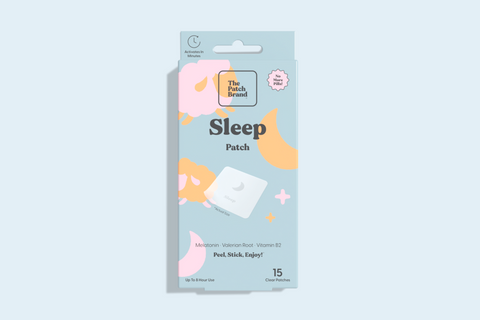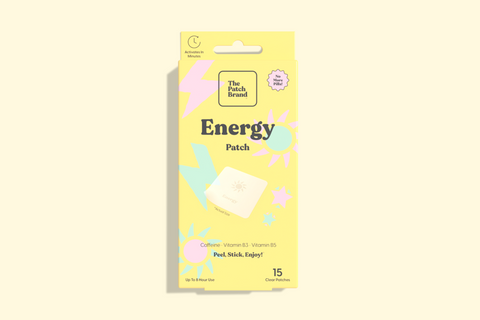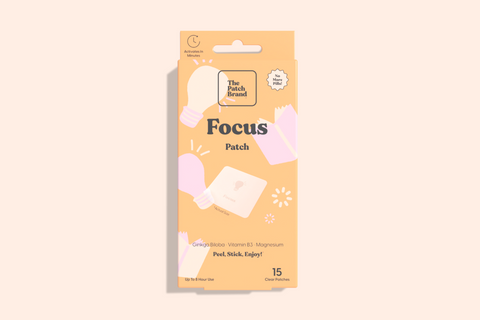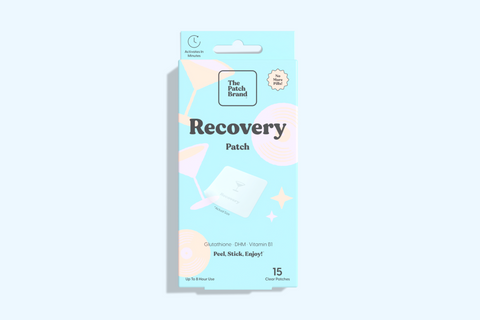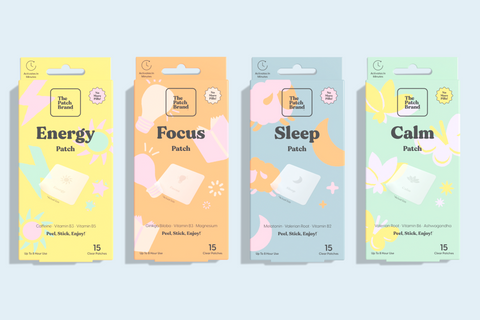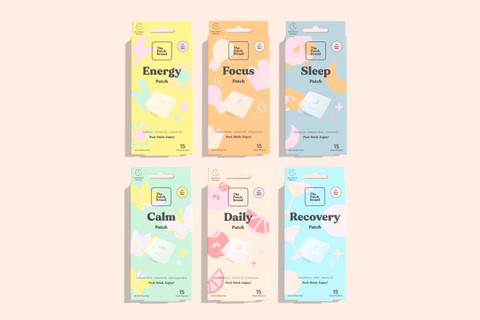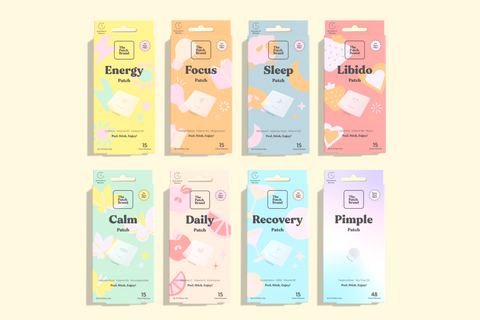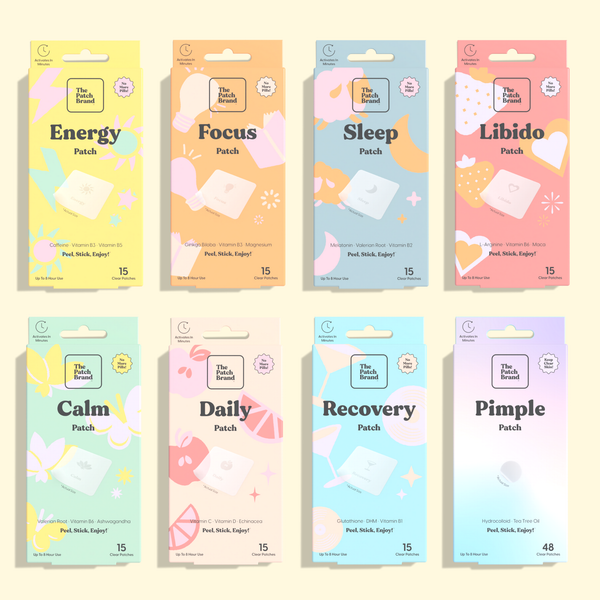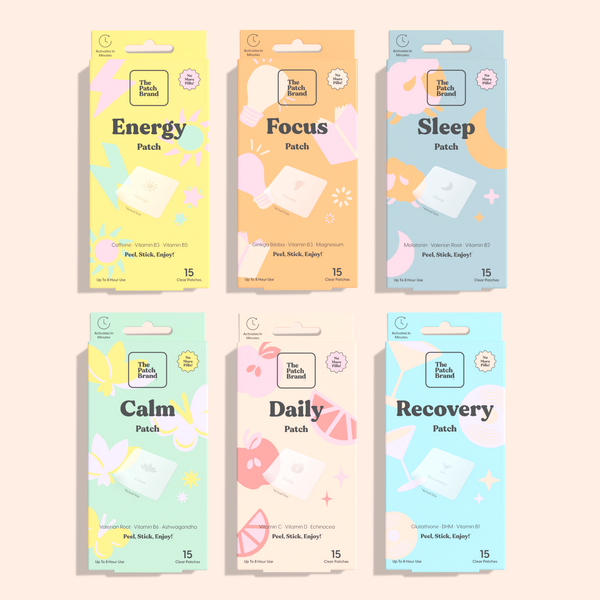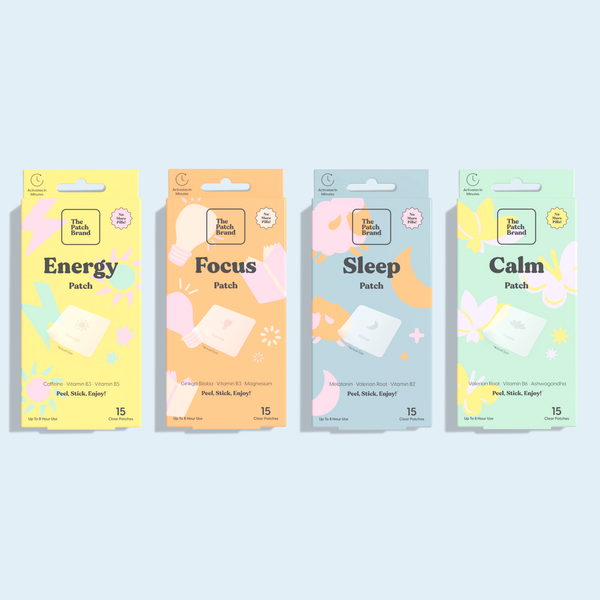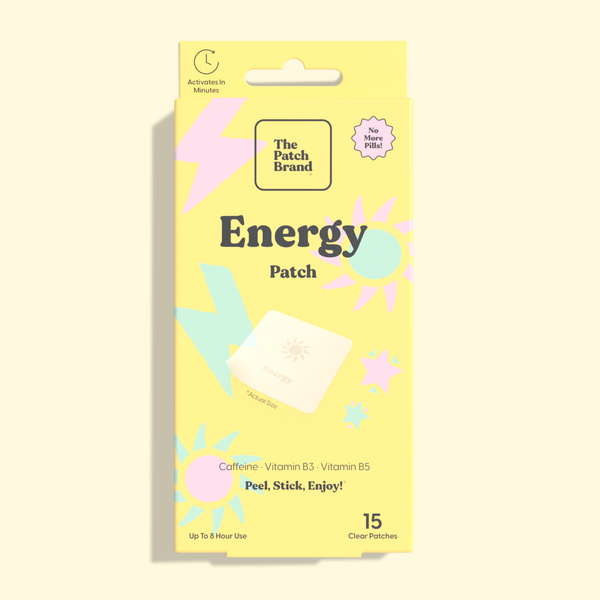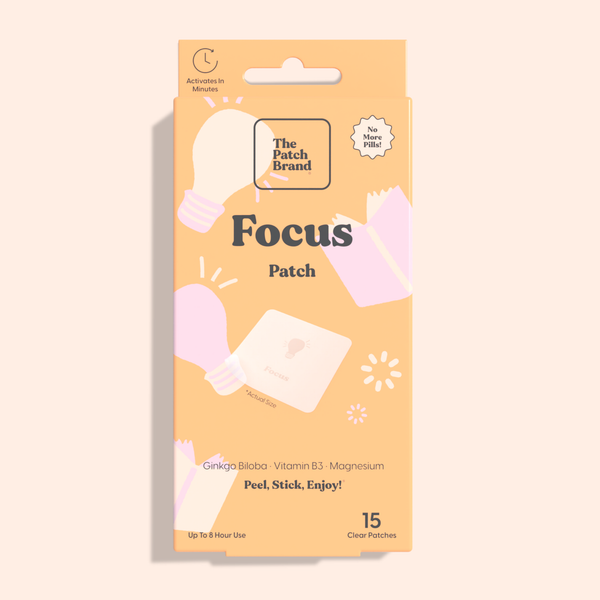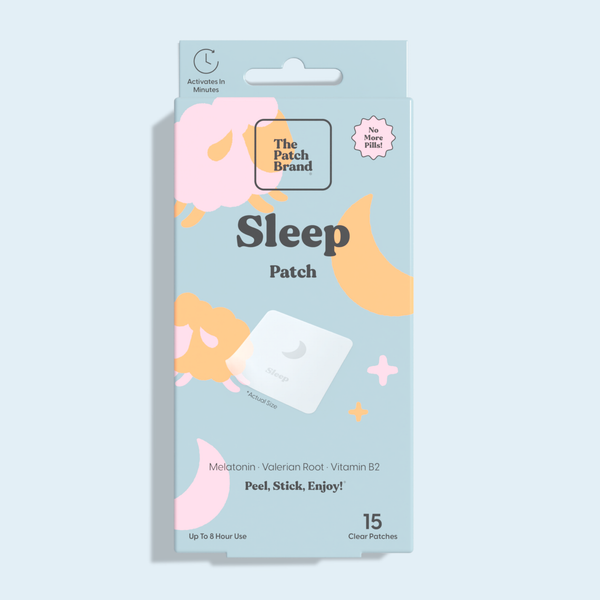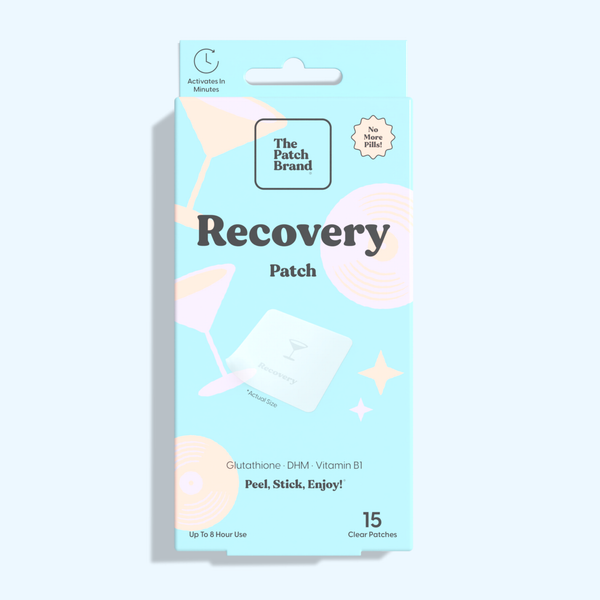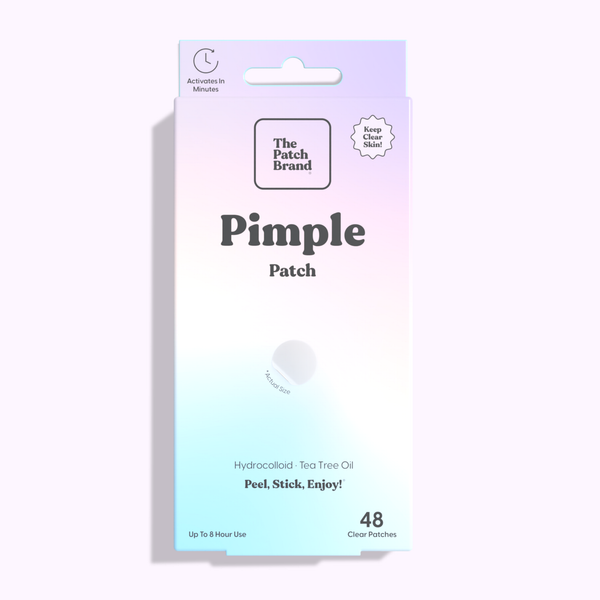Have you ever felt groggy and irritable after a night of insufficient sleep? This occasional sleeplessness may seem harmless, but what happens when it becomes chronic? The answer lies within the crucial role that sleep plays in our overall health and well-being. This blog will detail the impacts of sleep deprivation, with tips on how to improve sleep quality, including the use of
sleep patches.

The Role of Sleep in Health and Well-being
We often hear that a good night's sleep is vital for our well-being, but why exactly is it so crucial? To put it simply, sleep is our body's natural state of restoration and rejuvenation. During this period of rest, our bodies undergo a multitude of processes, such as memory consolidation, bodily repair, and emotional regulation. As adults, we need between seven to nine hours of sleep per night for optimal health. This requirement, unfortunately, is not always met.
The Consequences of Sleep Deprivation
Physical Consequences of Sleep Deprivation
Just as oil lubricates a car's engine, sleep serves as the body's lubricant, enabling smooth function. The immune system, for example, relies on a healthy sleep cycle to function at its best. When we don't get enough sleep, the immune response weakens, making us more susceptible to common infections such as colds and the flu.
Furthermore, chronic sleep deprivation is a pervasive issue that significantly affects long-term health, going beyond mere tiredness and impacting various critical bodily functions. Prolonged lack of adequate sleep has been closely associated with increased obesity rates. This connection is partly due to disruptions in the levels of hormones that regulate appetite, such as ghrelin and leptin. Ghrelin, the hormone that signals hunger to the brain, tends to be higher when one does not get enough sleep, leading to increased appetite and potential overeating. Conversely, leptin, which communicates satiety or the feeling of being full, decreases with sleep deprivation. Therefore, the hormonal imbalance caused by insufficient sleep can result in an ongoing cycle of hunger and increased food intake.
The effects of sleep deprivation extend to metabolic health, particularly concerning how the body processes glucose, which can escalate the risk of developing type 2 diabetes. Sleep loss can lead to decreased insulin sensitivity, where the body needs more insulin to help glucose enter cells to produce energy. This inefficiency in managing blood sugar levels can result in consistently higher blood sugar levels, a major risk factor for diabetes.
Cardiovascular health also takes a hit with prolonged sleep deprivation. This is because, during sleep, our bodies work to regulate blood pressure and heart rate. Without enough rest, these systems can be thrown off balance, leading to an increased risk of hypertension, heart attack, and stroke. While
vitamin patches can supplement health deficiencies, they're no substitute for a good night's sleep.
Mental Consequences of Sleep Deprivation
The effects of sleep deprivation extend beyond the physical realm and venture into cognitive territory. The most immediate cognitive impact is usually on attention span and decision-making abilities. People lacking sleep often struggle to focus, have slower reaction times, and find decision-making tasks more challenging.
More alarmingly, chronic sleep deprivation can impact memory and learning. During sleep, the brain strengthens the neural connections formed while learning new information, essentially solidifying memories. Without this process, memory recall can be compromised, and learning potential diminished.
Perhaps the most concerning mental consequence of prolonged sleep deprivation is its link with neurodegenerative diseases like Alzheimer's. Researchers have found that during sleep, the brain clears out waste proteins that, when accumulated, can contribute to the development of Alzheimer's.
Emotional Consequences of Sleep Deprivation
On an emotional level, sleep deprivation can wreak havoc on mood and emotional stability. A single night of poor sleep can lead to irritability and heightened emotional reactions. However, when occasional sleeplessness becomes chronic sleep deprivation, the stakes rise considerably. Prolonged lack of sleep has also been linked with an increased risk of developing mental health disorders, such as depression and anxiety. This connection highlights the critical role that sleep plays in regulating our emotional state and overall mental health.

Practical Tips for Improving Sleep Quality
Establishing a Consistent Sleep Schedule
Our bodies run on a biological clock known as the circadian rhythm, which follows a 24-hour cycle, alternating between alertness during the day and sleepiness at night. Keeping a consistent sleep schedule, waking up, and going to bed at the same time each day, can help regulate this rhythm and improve sleep quality. The key is consistency, even on weekends.
Creating a Sleep-Conducive Environment
Creating a tranquil and restful environment in your bedroom is crucial for achieving deep and restorative sleep. By focusing on specific aspects of your sleep environment, you can significantly enhance the quality of your rest. Here are ways to optimize your bedroom to become a serene sleep sanctuary:
-
Maintain a Cool Temperature: Keeping your bedroom at a lower temperature can significantly improve your sleep quality. Research suggests that the ideal temperature for sleep is around 65 degrees Fahrenheit (18.3 degrees Celsius). A cooler room helps decrease your core body temperature, signaling your body that it's time to sleep. Consider using air conditioning, and fans, or simply opening a window to maintain a cool and comfortable sleeping environment. Ensuring that your bedroom is neither too hot nor too cold can prevent restless nights and frequent wakefulness.
-
Minimize Noise: Reducing noise in your bedroom is essential for uninterrupted sleep. External sounds like traffic, neighbors, or barking dogs can severely disrupt your sleep cycle. To combat this, consider using soundproofing materials on walls or windows, investing in a white noise machine, or utilizing earplugs. Creating a quieter sleep environment helps your brain to fully relax and enter deeper stages of sleep, making it less likely for you to wake up during the night.
-
Eliminate Light: Light exposure during sleep can interfere with your body’s natural circadian rhythms. To ensure your room is dark enough for optimal sleep, use blackout curtains or heavy drapes that block light from windows. Alternatively, an eye mask can be an effective solution for travelers or those unable to control external lighting. By eliminating light sources, you can enhance the production of melatonin, the hormone responsible for regulating sleep, thereby improving sleep quality and duration.
-
Comfortable Bedding: The quality of your mattress and pillows plays a pivotal role in how well you sleep. Choose a mattress and pillows that support your preferred sleeping position and provide adequate comfort. For instance, memory foam might be ideal for those who need firm support, while softer beds may benefit side sleepers. Regularly replacing old bedding can also prevent discomfort and allergies that might disrupt sleep. Investing in high-quality bedding not only contributes to better sleep but can also help alleviate pain and stiffness.
-
Consider Sleep Aids: Sleep aids, such as supplements, herbal teas, or aromatherapy, can be beneficial in enhancing your sleep. However, it's important to remember that these aids should complement other sleep practices rather than replace them. Consult with a healthcare provider before starting any new sleep regimen, especially if you have ongoing sleep difficulties. Using sleep aids in conjunction with a comfortable, quiet, and dark environment can provide a comprehensive approach to improving sleep.
By implementing these adjustments, you can transform your bedroom into a space that truly supports deep, restful sleep. Prioritize these aspects to not only improve the quality of your sleep but also enhance your overall health and well-being. This way, your bedroom will serve not just as a place to rest, but as a rejuvenating retreat that prepares you for the challenges of the day ahead.
Adopting Relaxation Techniques
Relaxation techniques are integral to managing insomnia and improving sleep quality. Deep breathing exercises, a cornerstone of relaxation, involve slow and deep inhalations followed by extended exhalations. This method works by stimulating the parasympathetic nervous system, which reduces stress hormone levels and lowers the heart rate, creating a state of calmness conducive to sleep. Meditation further complements this by encouraging mindfulness and detachment from stressful thoughts. Through focused attention or open monitoring meditation, individuals learn to observe their thoughts and feelings without reaction, helping to break the cycle of anxiety and rumination that often accompanies sleeplessness.
Progressive muscle relaxation (PMR) is another effective method that involves tensing and then relaxing different muscle groups throughout the body. This technique promotes physical relaxation by highlighting the contrast between tension and relaxation, making you more aware of bodily sensations and easing muscle strain. PMR can be particularly beneficial for those whose sleep issues are compounded by physical discomfort or chronic pain, as it helps to alleviate the physical triggers of insomnia. Additionally, a
melatonin patch can provide additional help by regulating the sleep-wake cycle.

The Use of Sleep Patches For The Best Sleep
Sleep patches have emerged as an innovative solution to enhance sleep quality and address sleep-related issues. These patches are designed to deliver essential nutrients, such as vitamins and minerals, directly into the bloodstream through the skin. By bypassing the digestive system, the active ingredients in a sleep patch can have a faster and more targeted effect on the body.
These patches are typically infused with ingredients like melatonin, lavender, chamomile, and other sleep-promoting substances. Melatonin, in particular, is a hormone naturally produced by the body to regulate sleep-wake cycles. Applying a
sleeping patch with melatonin can help regulate the sleep cycle and promote a deeper, more restful sleep.
One of the advantages of a
vitamin patch for sleep is its convenience. They can be easily applied before bedtime and left on overnight, without the need to swallow pills or liquids. Additionally, sleep patches allow for a controlled release of the active ingredients, ensuring a steady and prolonged effect throughout the night.
When it comes to improving sleep quality, many individuals are turning to innovative solutions like the best vitamin patches for sleep. However, not all vitamin patches are created equal, and selecting the right one can be crucial for achieving the desired results. Here’s a detailed look at several key factors to consider when choosing the best vitamin patches for sleep:
-
Ingredient Quality: It’s essential to opt for vitamin patches made with superior ingredients. High-quality ingredients ensure better absorption and effectiveness. Look for patches that contain scientifically-backed components known to aid sleep, such as melatonin, magnesium, and vitamin B12. Patches that source their ingredients from reputable suppliers and disclose their ingredient sourcing practices are generally more reliable and effective.
-
Safety and Efficacy: Ensure that the vitamin patches have undergone rigorous testing for both safety and effectiveness. These products must be compliant with current regulatory standards, such as those set by the FDA or equivalent bodies in other countries. Verify that the patches are manufactured in facilities that adhere to Good Manufacturing Practices (GMP). Products that provide transparent information about clinical trials and research supporting their claims are more trustworthy.
-
Consult Healthcare Professionals: Before starting any new supplement regimen, including vitamin patches, it’s wise to seek advice from healthcare experts. Doctors, nutritionists, or sleep specialists can provide guidance tailored to your specific health needs and conditions. They can help determine if vitamin patches are a suitable addition to your routine and advise on the appropriate dosage and ingredients based on your medical history and current medications.
-
Read Reviews: Checking consumer reviews is another vital step in selecting the right vitamin patch for sleep. Reviews can provide insights into the effectiveness and user experience of different brands. Look for patterns in feedback regarding the product’s performance and any side effects experienced by users. Products with consistently positive reviews are likely to be more effective and better received.
Choosing the best vitamin patch for sleep involves careful consideration of these factors. By selecting a product that excels in ingredient quality, safety, efficacy, and user satisfaction, you can enhance your chances of improving your sleep quality. Remember, while vitamin patches can be a convenient and innovative way to support sleep, they should complement a holistic approach to sleep health, including good sleep hygiene practices and a suitable sleep environment.

Sleep deprivation's negative consequences are undeniable. As such, prioritizing a good night's sleep should be at the forefront of our minds. Implementing simple changes like establishing a consistent sleep routine, creating a sleep-conducive environment, and using relaxation techniques can significantly improve our sleep quality. When necessary, seeking professional help is a crucial step. Prioritizing sleep is the best thing we can do for our overall health and well-being. After all, it's not just about adding years to our life, but life to our years.




